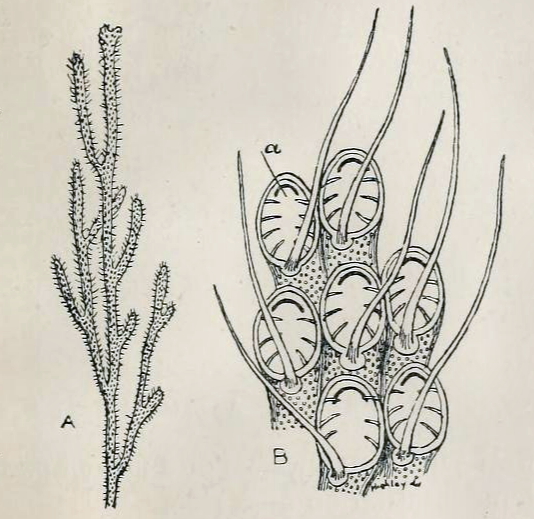$ 0.000 -1.75%
Electra (ECA) Rank 8405
| Mkt.Cap | $ 0.00000000 | Volume 24H | 0.00000000ECA |
| Market share | 0% | Total Supply | 0.00000000ECA |
| Proof type | PoW/PoS | Open | $ 0.000032 |
| Low | $ 0.000030 | High | $ 0.000032 |
Overview of the Electra Complex in Psychology
This lack of mention portrays the tragic events that occur as the result of human error, and not divine intervention. The gods are portrayed as chthonic, as near the beginning there is a reference to "Justice who dwells with the gods beneath the earth." Sophocles references Olympus twice in Antigone. This contrasts with the other Athenian tragedians, who reference Olympus often. Elektra is a playable character in Lego Marvel Super Heroes,[90] voiced by Laura Bailey.[citation needed] In a bonus mission at Fisk Tower, Kingpin summons Elektra and Bullseye to help his henchmen fight Captain America, Daredevil, and Spider-Man.
She took it upon herself to punish Agamemnon for murdering her daughter, and dared to think that she could put the state back in order after his death. She is extremely apt with words, having used them to trap Agamemnon and lure him to his death. She also dared to take a lover, violating her marriage vows to Agamemnon.


The peasant is kind to her and has respected her family name and her virginity. In return for his kindness, Electra helps her husband with the household chores. Despite her appreciation for her husband's kindness, Electra resents being cast out of her house and laments to the Chorus about her struggles with her drastic change in social status. Translated by Kitto, H. D. F. Oxford University Press. After a choral ode Orestes arrives, carrying the urn supposedly containing his ashes.
Of the three Theban plays Antigone is the third in order of the events depicted in the plays, but it is the first that was written.[1] The play expands on the Theban legend that predates it, and it picks up where Aeschylus' Seven Against Thebes ends. Cassandra- A Trojan priestess, captured by Agamemnon and carried to Argos as his slave and mistress. Apollo gave her the gift of prophecy, but when she refused to bear him a child, he punished her by making all around her disbelieve her predictions. She sees the ancestral curse afflicting Agamemnon's family, and predicts both his death and her own, as well as the vengeance brought by Orestes in the next play.
The aged servant explains that Aegisthus is currently in his stables, preparing to sacrifice oxen for a feast. Orestes goes to confront Aegisthus while Electra sends the aged servant to tell Clytemnestra that she had a son ten days ago, knowing this will bring Clytemnestra to her house. A messenger arrives and describes Orestes’ successful murder of Aegisthus. Orestes and Pylades return bearing Aegisthus’ body. As Clytemnestra approaches, Orestes begins to waver on his decision to murder their mother.

PCMag’s Apple Pro Display XDR Review: It Just Works!
However, while we may infer from this that he is uncomfortable with the idea of killing his mother, we cannot say that he has moral qualms about his deed. While he may dread the action ahead of him, he is fully convinced of the justice of his acts. Antigone was written at a time of national fervor. In 441 BCE, shortly after the play was performed, Sophocles was appointed as one of the ten generals to lead a military expedition against Samos. It does, however, expose the dangers of the absolute ruler, or tyrant, in the person of Creon, a king to whom few will speak freely and openly their true opinions, and who therefore makes the grievous error of condemning Antigone, an act which he pitifully regrets in the play's final lines.
A two-volume selection from the fragments, with facing-page translation, introductions, and notes, was published by Collard, Cropp, Lee, and Gibert,[96][97] as were two Loeb Classical Library volumes derived from them,[98][99] and there are critical studies in T. B. L. Webster's older The Tragedies of Euripides[100] based upon what were then believed to be the most likely reconstructions of the plays. The original production dates of some of Euripides' plays are known from ancient records, such as lists of prize-winners at the Dionysia, and approximations are obtained for the remainder by various means.
Orestes, who has killed his adulterous mother, Clytemnestra, and her lover Aegisthus, has fled to the Temple of Apollo for refuge, pursued by the Furies (Erinyes), the goddesses of vengeance. Apollo puts two of the Furies to sleep while he purifies the young man with pig's blood. The female figure on the left is the ghost of Clytemnestra, vainly attempting to awaken the Furies.
She was able to say goodbye to Murdock before dying in his arms. A year later, Elektra and her father were kidnapped by terrorists.
Who is Orestes in the Odyssey?
Menelaus and she then returned to Sparta, where they lived happily until their deaths. According to a variant of the story, Helen, in widowhood, was driven out by her stepsons and fled to Rhodes, where she was hanged by the Rhodian queen Polyxo in revenge for the death of her husband, Tlepolemus, in the Trojan War.
Jailbreak iOS 11.4 Beta With Electra Jailbreak 1.0.3
He recognizes Orestes because of the scar on his brow and the siblings are reunited. Orestes arrives with his friend Pylades, son of Strophius, and a pedagogue, i.e. tutor (an old attendant of Orestes, who took him from Electra to Strophius). Their plan is to have the tutor announce that Orestes has died in a chariot race, and that two men (really Orestes and Pylades) are arriving shortly to deliver an urn with his remains. Meanwhile, Electra continues to mourn the death of her father Agamemnon, holding her mother Clytemnestra responsible for his murder.

According to Jung, girls experiencing the complex suffer from penis envy, and resent their mothers as a perceived source of their castration. They spend increased amounts of time with their fathers and may flirt and practice adult sexual behaviors—without any actual sexual contact—with their fathers.
How do I install an IPA file?
In the distribution of the spoils after the capture of Troy, Cassandra fell to Agamemnon and was later murdered with him. She was worshipped, as Alexandra, with Agamemnon.

He gives her the urn and she delivers a moving lament over it, unaware that her brother is in fact standing alive next to her. Now realizing the truth, Orestes reveals his identity to his emotional sister. She is overjoyed that he is alive, but in their excitement they nearly reveal his identity, and the tutor comes out from the palace to urge them on.
In 2004, theatre companies Crossing Jamaica Avenue and The Women's Project in New York City co-produced the Antigone Project written by Tanya Barfield, Karen Hartman, Chiori Miyagawa, Pulitzer Prize winner Lynn Nottage and Caridad Svich, a five-part response to Sophocles' text and to the US Patriot Act. The text was published by NoPassport Press as a single edition in 2009 with introductions by classics scholar Marianne McDonald and playwright Lisa Schlesinger.
- Clytemnestra had held a grudge against her husband for agreeing to sacrifice their eldest daughter, Iphigenia, to Artemis so he could send his ships to fight in the Trojan war.
- He lifts the veil to discover who it really is, and Orestes then reveals himself.
- Resolving the Electra complex ultimately leads to identification with the same-sex parent.
- A two-volume selection from the fragments, with facing-page translation, introductions, and notes, was published by Collard, Cropp, Lee, and Gibert,[96][97] as were two Loeb Classical Library volumes derived from them,[98][99] and there are critical studies in T.
- The "Select" plays are found in many medieval manuscripts but only two manuscripts preserve the "Alphabetical" plays—often denoted L and P, after the Laurentian Library at Florence, and the Bibliotheca Palatina in the Vatican, where they are stored.
7 "Crazy" Women in Literature Who Were Actually Being Totally Reasonable
Athenians, proud of their democratic tradition, would have identified his error in the many lines of dialogue which emphasize that the people of Thebes believe he is wrong, but have no voice to tell him so. This scene is the "Agon" or contest, central to many Greek plays. We see the two points of view in stark contrast. The sentry explains that the watchmen uncovered Polynices' body and then caught Antigone as she did the funeral rituals. Creon questions her after sending the sentry away, and she does not deny what she has done.
Creon, the new ruler of Thebes and brother of the former Queen Jocasta, has decided that Eteocles will be honored and Polynices will be in public shame. The rebel brother's body will not be sanctified by holy rites and will lie unburied on the battlefield, prey for carrion animals like worms and vultures, the harshest punishment at the time. Antigone and Ismene are the sisters of the dead Polynices and Eteocles.

Creon is telling his people that Polynices has distanced himself from them, and that they are prohibited from treating him as a fellow-citizen and burying him as is the custom for citizens. Haemon is the son of Creon and Eurydice, betrothed to Antigone.
Freud referred to a daughter's tendency to compete with her mother for possession of her father as the feminine Oedipus attitude or the negative Oedipus complex. It was Jung who went on to dub Freud's feminine Oedipus attitude as the Electra complex. The Electra complex is a psychoanalytic term used to describe a girl's sense of competition with her mother for the affections of her father. The concept of “penis envy” has, in particular, been criticized as sexist.

Who killed Agamemnon?
When Helen, the wife of Menelaus, was taken to Troy by Paris, Agamemnon commanded the united Greek armed forces in the ensuing Trojan War. Upon Agamemnon's return from Troy, he was killed (according to the oldest surviving account, Odyssey 11.409–11) by Aegisthus, the lover of his wife Clytemnestra.
Orestes by sending him away when their father was murdered. When he later returned, she helped him to slay their mother and their mother’s lover, Aegisthus.
Electra retaliated by arranging to have her mother murdered. Upon Agamemnon's murder Clytemnestra and Aegisthus put Orestes, the other child of Clytemnestra and Agamemnon, under the care of the king of Phocis, where he became friends with the king's son, Pylades.
Now grown, Orestes and Pylades travel to Electra and her husband's house. Orestes keeps his identity hidden from Electra, claiming to be messengers of Orestes. He uses his anonymity to determine Electra's loyalty to him and Agamemnon before he reveals his plans for revenge. After some time it is clear that Electra is passionate about avenging the death of their father. At this point the aged servant who brought Orestes to Phocis years before enters the play.
The History
Her death appeased Artemis, and the Greek army set out for Troy. Several alternatives to the human sacrifice have been presented in Greek mythology. Other sources, such as Iphigenia at Aulis, say that Agamemnon was prepared to kill his daughter, but that Artemis accepted a deer in her place, and whisked her away to Tauris in the Crimean Peninsula. They begin to plot how they will murder both Aegisthus and Clytemnestra.
At the play's end, Orestes is acquitted, and the Furies are changed into the Eumenides (“Kindly”). The Electra complex is thought to take place during the phallic stage, ages 3 to 6, of psychosexual development, during which time daughters spend more time with their fathers, flirting and practicing sexual behaviors without sexual contact. Freud described the feminine Oedipus attitude complex as a daughter's longing for her father and competition with her mother. The daughter possesses an unconscious desire to replace her mother as her father's sexual partner, thus leading to a rivalry between daughter and mother. As a result, Freud believed that the girl then begins to identify with and emulate her mother out of fear of losing her love.

Electra was written towards Sophocles last years. Although an exact date can not be established, specialists usually consider that the tragedy was written around 409 B.C. Liliana Cavani's 1970 I Cannibali is a contemporary political fantasy based upon the Sophocles play, with Britt Ekland as Antigone and Pierre Clémenti as Tiresias.
Is Elektra blind?
Agamemnon. Agamemnon (Ἀγαμέμνων, Agamémnōn) is the first of the three plays within the Oresteia trilogy. It details the homecoming of Agamemnon, King of Mycenae, from the Trojan War.








